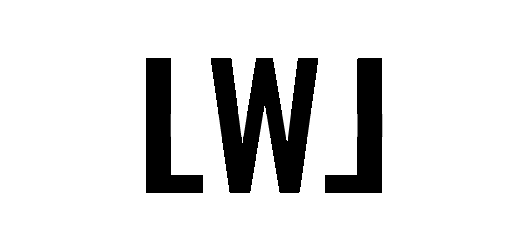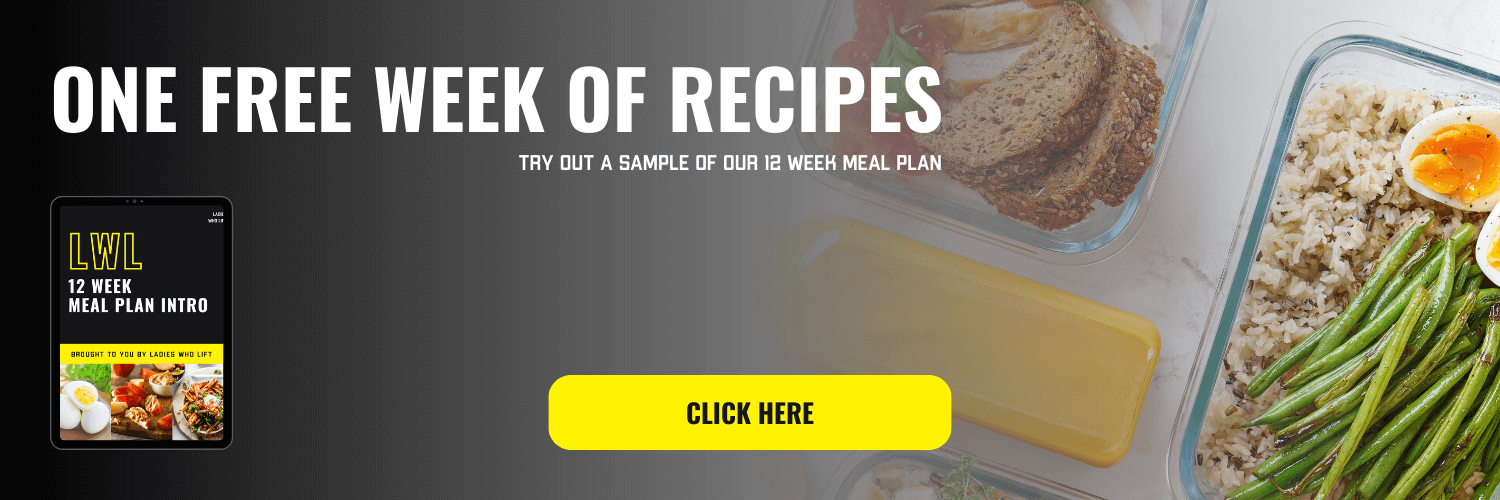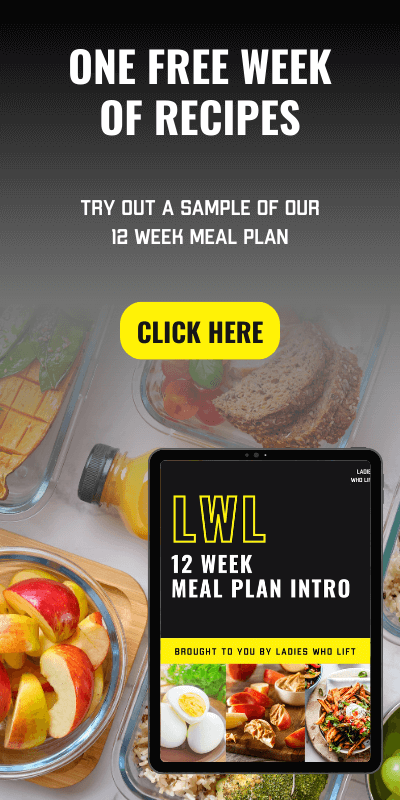How to Build Muscle on a Vegan Diet
Contrary to popular belief, you don’t need to be drinking gallons of milk or eating pounds of chicken to build muscle, gain strength, and improve your athletic performance. More and more people are choosing to eat a vegan diet for multiple reasons, which may include reducing carbon footprint and environmental impact, choosing whole plant foods for chronic disease prevention, and showing kindness towards the sentient animals sharing the planet with us.
Luckily, it is easier than ever to build muscle on a vegan diet! Read on to learn four important components for building muscle while eating a vegan diet!
1. Eat adequate calories, FATs, and carbohydrates
Building new muscle is an energetically demanding process - your body is literally creating new tissue! If we do not have enough energy available, building muscle will be challenging for our bodies. Beginner lifters may see a “recomposition” effect, meaning they are able to gain some muscle while eating maintenance calories, but for the majority of us, we will need to be in a caloric surplus.
A caloric surplus simply means you are eating more calories than you are using during the day. Building muscle doesn’t need a huge extra amount, however, attention must be paid to eating enough! Getting enough calories on a vegan diet means not cutting out whole food groups (like fats or carbs), eating regularly during the day, balancing meals, and choosing lower fiber food options if feeling overly full. Fat sources are a great way to increase caloric intake as fat is the most calorically dense macronutrient at 9 kcals per gram. Luckily there are lots of delicious vegan fats!
Vegan sources of healthy fats
Olive oil
Avocado oil
Tahini
Nut butters
Pumpkin seeds
Chia seeds
Hemp hearts
Avocado
Flax seeds
Coconut
Carbohydrates are also key to building vegan muscle by being the preferred energy source for the body. It’s hard to build muscle when you can’t get in a good workout! Carbohydrates can be grouped into two general groups - refined and unrefined. Refined carbohydrates will break down quickly and are a great idea for either immediately before or during a workout. Unrefined carbohydrates have more fiber and will break down more slowly for an extended energy release. Unrefined carbohydrates are the better choice after workouts since fiber slows down digestion for longer energy release.
Vegan examples of refined carbohydrates
Don’t forget to check the labels if it contains dairy, egg, gelatin, or honey!
Crackers
Bagels
Pretzels
Rice cakes
Candy
Sports gels
Applesauce
Fruit purees
Fruit juice
Vegan examples of unrefined carbohydrates
Whole grain breads
Brown rice
Potatoes
Corn
Farro
Oatmeal
Spelt
Quinoa
Whole fruits
2. Eat Enough protein
The process of building muscle on a vegan diet takes energy to happen, but the building blocks must also be there to construct new muscle. The protein we eat is broken down into these blocks (amino acids), which are then reassembled together to form protein structures in muscle fibers. So if protein intake is inadequate, it becomes much more difficult to build new muscle.
So, how much protein do we need? And can we get enough protein from a vegan diet? It’s important to remember that protein needs are expressed as a range, and just because someone else is eating 1 gram per pound bodyweight doesn’t mean you need to do the same. General research conclusions point to 1.5-2.2 g of protein per kilogram of bodyweight, with potentially diminishing returns past 1.6 g/kg. So if someone weighs 75 kilograms, they will be best served by eating around 135 g of protein per day.
We can absolutely get all the protein we need from a vegan diet, even when the goal is building muscle. However, just like eating any other diet, it is important to eat protein at each meal. And luckily all plants contain some amount of protein which also adds up over the day. Eating a variety of protein sources becomes even more important when we consider that humans cannot synthesize 9 of the amino acids, meaning we must get these from food sources.
Plants typically do not contain all essential amino acids (soy is the exception!) so it is wise to eat a variety of protein sources to get all the amino acids we need. Soy is also a great choice immediately after a workout, as soy is high in leucine, a branched-chain amino acid important for stimulating muscle protein synthesis.
Vegan sources of protein
Beans
Soy
Lentils
Tofu
Tempeh
Seitan
Mushrooms
Spirulina
Nutritional yeast
3. Consider Creatine supplementation
Creatine is a naturally occurring compound in our bodies (made from three amino acids!) mostly stored in our skeletal muscles. Creatine plays a crucial role in energy generation for quick high-intensity movements (like lifting!) by recycling ATP through phosphocreatine. You may remember from those high school days that ATP provides energy to our muscles.
Since creatine is stored in muscle tissue, people who eat meat are also consuming creatine at the same time. For vegans, creatine supplementation can be beneficial to help increase strength through higher power output. Creatine is not a steroid or a banned substance and is backed by many research studies showing positive benefits. It may even help with cognitive function!
If you’re interested in supplementing with creatine, no need to buy the fancy brands or run loading protocols. 5 grams of creatine monohydrate mixed into a shake or smoothie works just fine.
4. Implement Progressive overload in a strength training routine
Of course, we need muscle stimulus for muscle growth! Vegan or not, building muscle means repeated stimulus followed by rest periods. Progressive overload means your muscles are being challenged more and more as they grow larger and stronger. A proper strength training routine will promote muscle building by increasing weight, reps, and/or sets over time in a structured, safe, and effective manner. LWL is here to help you get stronger!
Despite previous stereotypes, it is absolutely possible to build muscle and get stronger while eating a vegan diet.
Gaining Muscle as a Vegan Summary
Four components should be carefully considered to help support building muscle, which include eating adequate calories, fats, and carbohydrates, eating adequate protein from varied sources, considering creatine supplementation, and strength training with progressive overload followed by adequate rest. Of course, if you have specific questions and would like more individual guidance, working 1:1 with a vegan registered dietitian is a great idea for maximizing muscle building on a vegan diet!
About the author
Anna is a registered dietitian with a board certification in sports dietetics. Once a former 4-H farm kid, she went vegan in 2019 after learning more about factory farming and animal rights. Since then, she's competed in powerlifting and ran 3 ultramarathons. Anna is most passionate about her two cats, carbohydrates, grocery shopping, planning National Park #vanlife trips with her husband, and teaching women to how to best fuel their adventures and training with plant-based nutrition.
IG: annatee_rd


.png?format=2500w)
.png?content-type=image)



